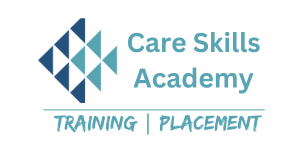In today’s fast-paced world, air conditioning (AC) has become an essential part of modern life. Whether it’s at home, in the office, or in vehicles, we rely on these systems to maintain comfort, especially in regions with extreme weather. With this growing demand for cooling systems, there is an ever-increasing need for skilled professionals who can install, repair, and maintain air conditioning units. If you’re looking to develop a valuable skill set or launch a career in a high-demand industry, enrolling in an AC Repairing Course could be your perfect opportunity.
Why Learn AC Repairing?
The AC industry is thriving, with more and more people relying on air conditioning systems for their comfort and well-being. This has created a consistent demand for professionals who can troubleshoot and repair malfunctioning units. A well-trained HVAC (Heating, Ventilation, and Air Conditioning) technician can expect a steady stream of job opportunities, as well as the potential to start their own business.
Additionally, learning AC repair is not just about job prospects. It is also a highly practical skill. Whether you’re an aspiring technician or a homeowner who wants to understand how their system works, AC repair knowledge can save you time, money, and the hassle of relying on service calls for every minor issue.
What You’ll Learn in an AC Repairing Course
A comprehensive AC repairing course equips you with both theoretical knowledge and practical skills. Here’s what typically is covered in the curriculum:
- Basic Principles of Refrigeration and Air Conditioning Systems: You will start by learning how an AC unit functions. This includes understanding the refrigeration cycle, how heat is absorbed and expelled, and the roles of components like compressors, evaporators, and condensers.
- Types of Air Conditioning Systems: Different types of air conditioning systems, including window ACs, split ACs, central air systems, and commercial-grade units, are covered. This helps students adapt to a variety of work environments.
- AC Components and Their Functions: A detailed overview of key components such as compressors, fans, refrigerants, thermostats, and capacitors will be provided. Students will learn how these components work together and how to diagnose when one is malfunctioning.
- Installation and Maintenance: Understanding proper installation is essential for ensuring a unit runs efficiently. You’ll learn how to install AC units safely, including proper electrical connections, refrigerant handling, and duct installation for central systems. Routine maintenance techniques, such as cleaning filters and coils, are also part of the training.
- Troubleshooting and Diagnostics: One of the most valuable skills in AC repair is being able to quickly and accurately diagnose problems. This part of the course focuses on recognizing symptoms, interpreting error codes, and performing multimeter tests on electrical components.
- Safety Measures: Working with electrical systems and refrigerants can be hazardous. The course teaches all necessary safety protocols to ensure technicians handle tools, refrigerants, and electrical equipment with care, avoiding accidents or system damage.
- Advanced Diagnostics and Repair: Once the basics are covered, the course will dive into advanced repair techniques, such as replacing compressors, repairing circuit boards, and sealing refrigerant leaks. This section prepares students for more complex repair jobs and challenges.
Benefits of Joining an AC Repairing Course
Hands-On Training: AC repairing courses provide practical, hands-on experience in real-world scenarios. Students practice with real units, troubleshoot problems, and repair systems under the guidance of expert instructors. This prepares them for real-world situations and enhances their confidence.
Job Opportunities: Completing an AC repairing course opens doors to various job opportunities. You can work as an HVAC technician for service companies, become a maintenance expert in large organizations, or even start your own repair business. As AC systems become more integral to everyday life, the demand for these services continues to grow.
Skill Development: Even if you have no prior experience in HVAC or technical fields, a course can quickly bring you up to speed. These courses are designed for beginners as well as professionals looking to expand their expertise.
Certifications: Upon completing an AC repairing course, you’ll receive certifications that validate your skills and knowledge. Having these certifications can significantly boost your credibility and job prospects.
Conclusion
An AC repairing course offers a practical, in-demand skill set that leads to promising career opportunities. With hands-on training, real-world experience, and the ability to work on various types of AC systems, this course is perfect for anyone interested in a rewarding career in the HVAC industry. Whether you’re looking to start a new profession, advance your current skill set, or simply gain valuable knowledge, this course can be your gateway to success.
Take the first step toward a fulfilling and well-paying career by enrolling in an AC repairing course today!

